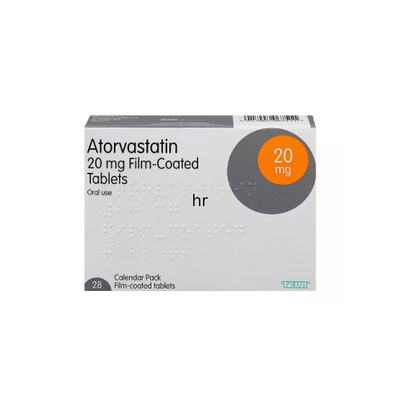Atorvastatin
Category:High CholesterolAtorvastatin is a medication used to lower high levels of cholesterol and reduce the risk of cardiovascular events, such as heart attacks and strokes. It belongs to a class of drugs known as statins, which are commonly prescribed to manage high cholesterol levels. Atorvastatin works by inhibiting an enzyme in the liver that plays a key role in the production of cholesterol.
Fetching Data...
Frequently Asked Questions for Atorvastatin
Further Information
Here are some key points about atorvastatin:
-
Cholesterol Management: Atorvastatin is primarily used to lower low-density lipoprotein (LDL) cholesterol, often referred to as "bad" cholesterol. By reducing LDL cholesterol levels, it helps decrease the risk of atherosclerosis (the buildup of cholesterol and fats in the arteries) and cardiovascular events.
-
Other Lipid Benefits: In addition to lowering LDL cholesterol, atorvastatin can also increase high-density lipoprotein (HDL) cholesterol levels, often called "good" cholesterol. It can also reduce triglyceride levels.
-
Cardiovascular Risk Reduction: Atorvastatin is prescribed to individuals at risk of heart disease, especially those with known risk factors such as high cholesterol, hypertension, diabetes, or a history of cardiovascular events.
-
Dosage: The dosage of atorvastatin can vary depending on the individual's cholesterol levels, medical history, and the specific goals of treatment. It is usually taken as a daily oral medication.
-
Side Effects: Common side effects of atorvastatin can include muscle pain or weakness, gastrointestinal symptoms like nausea or diarrhea, and headache. In rare cases, severe side effects such as muscle breakdown (rhabdomyolysis) and liver problems may occur.
-
Monitoring: When prescribed atorvastatin, healthcare providers typically monitor cholesterol levels and liver function periodically to assess the medication's effectiveness and safety.
-
Lifestyle Changes: Atorvastatin is often prescribed alongside lifestyle changes, including a heart-healthy diet, regular exercise, and smoking cessation, to achieve optimal cholesterol management and reduce cardiovascular risk.
It's essential to take atorvastatin as directed by a healthcare provider and to communicate any side effects or concerns promptly. This medication is typically used as part of a broader approach to managing heart health and reducing the risk of heart-related complications.
